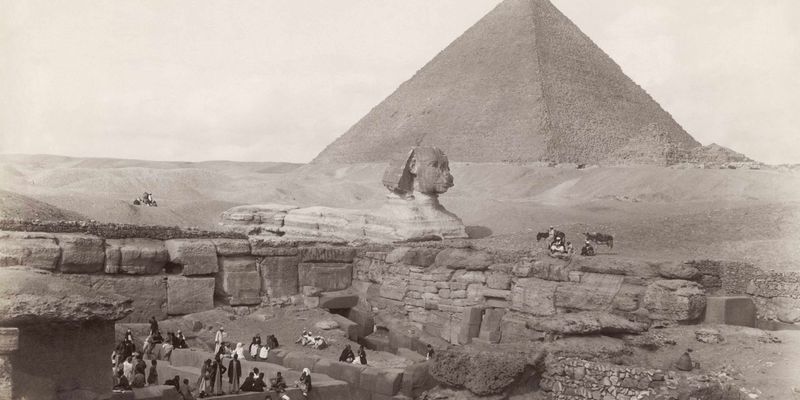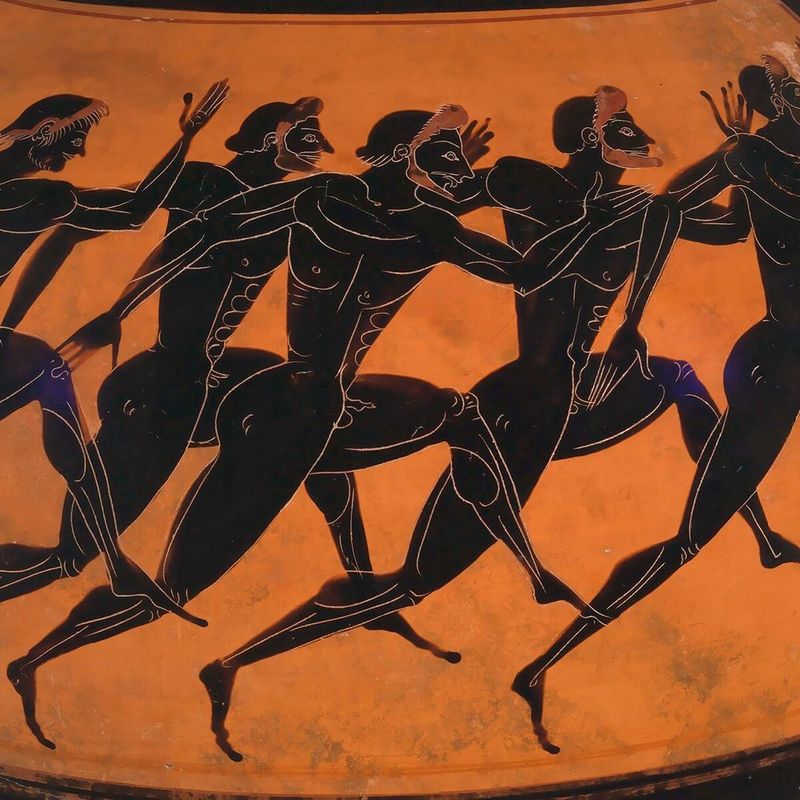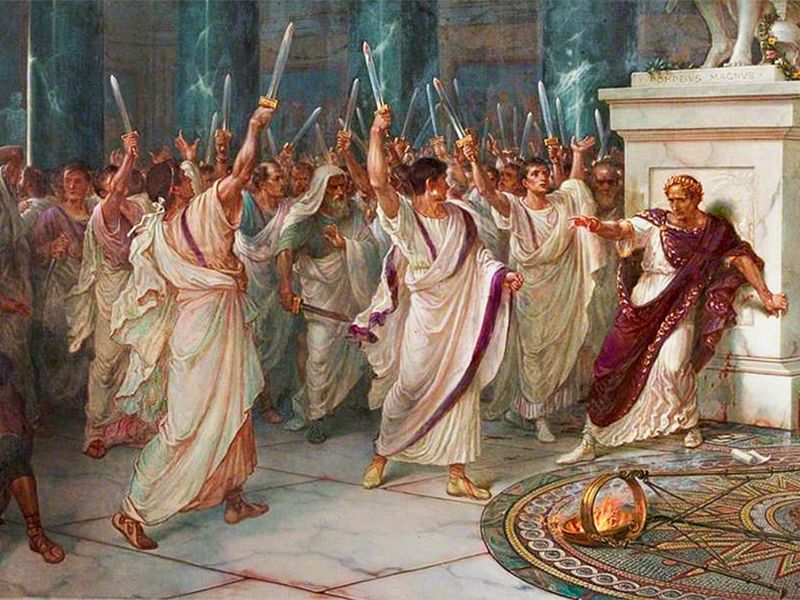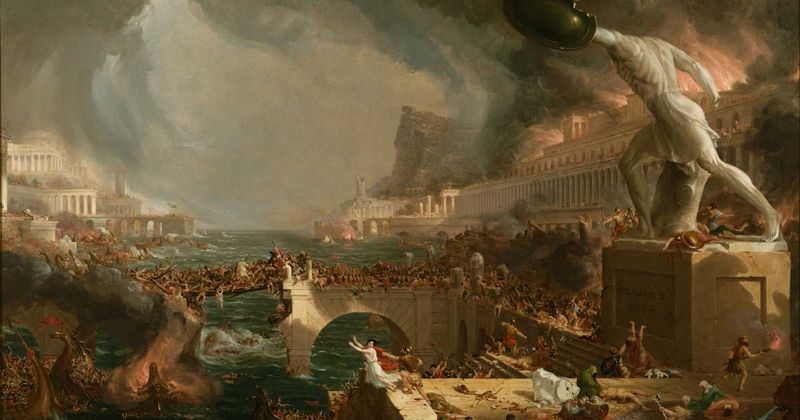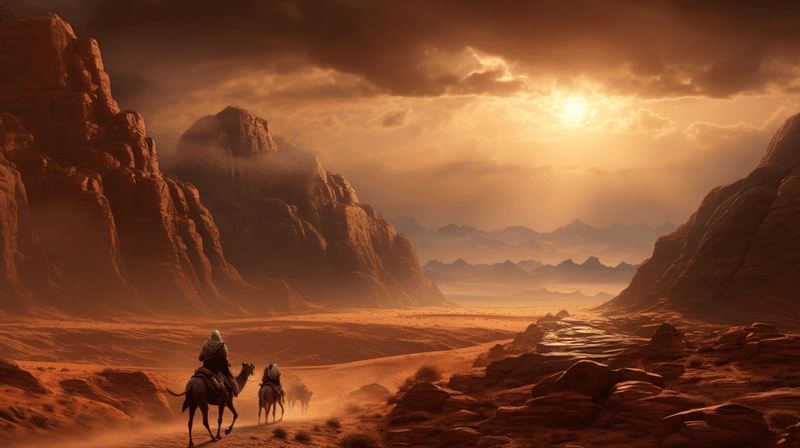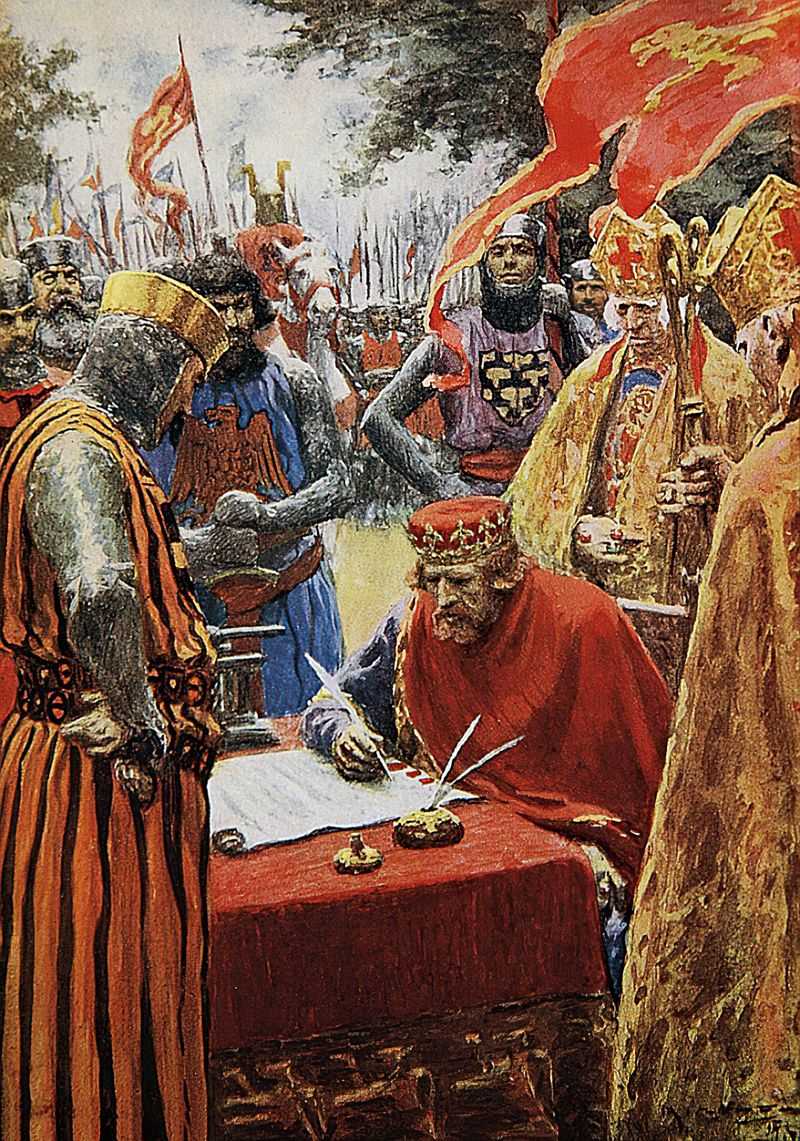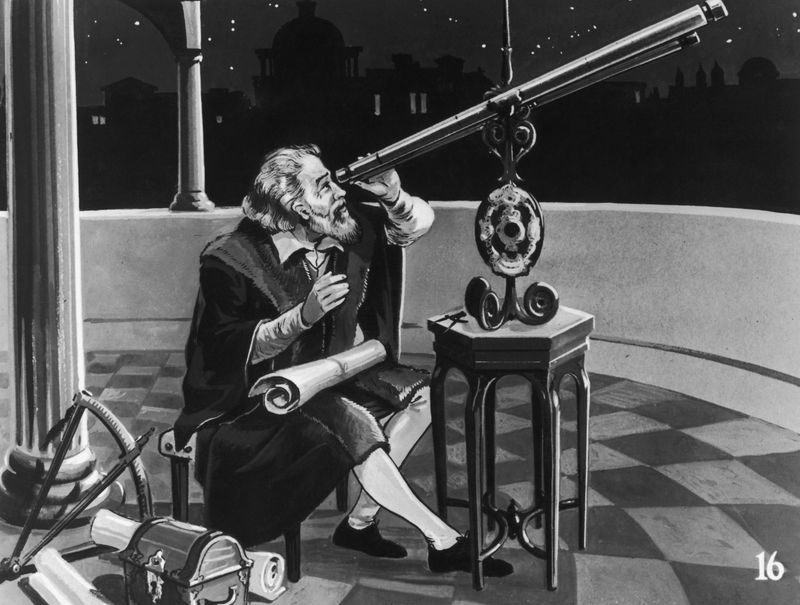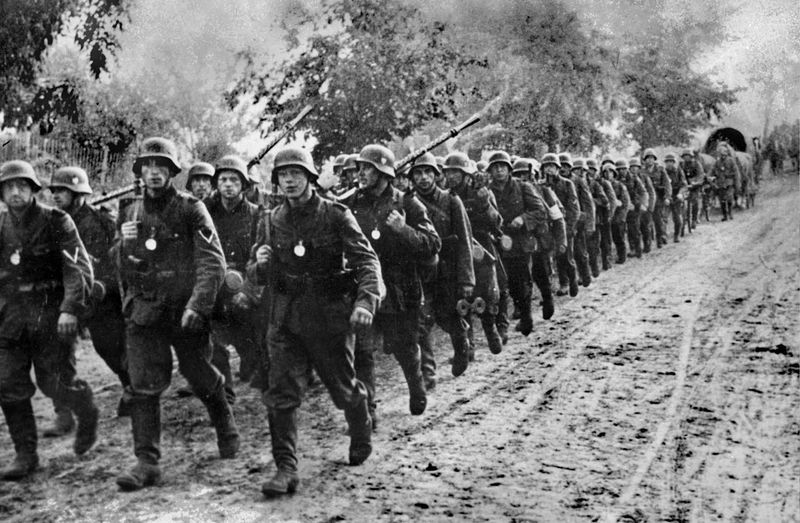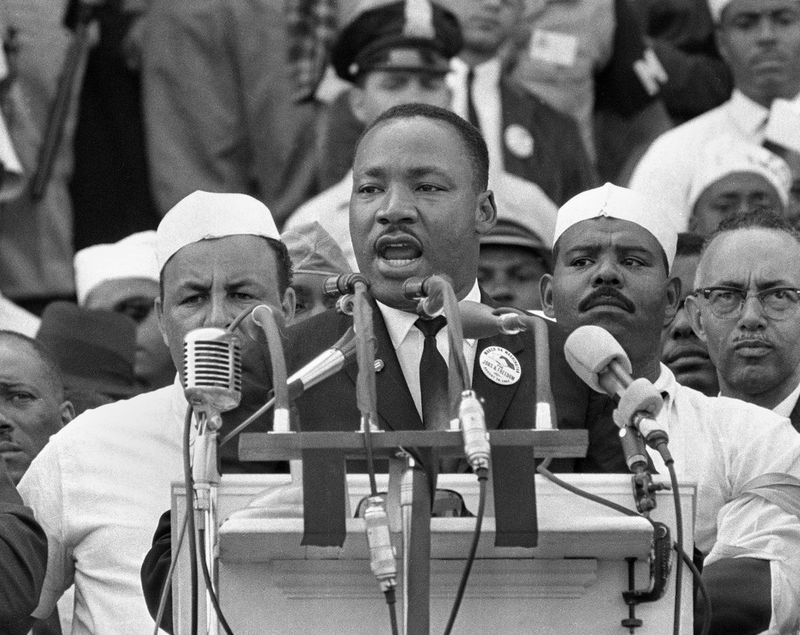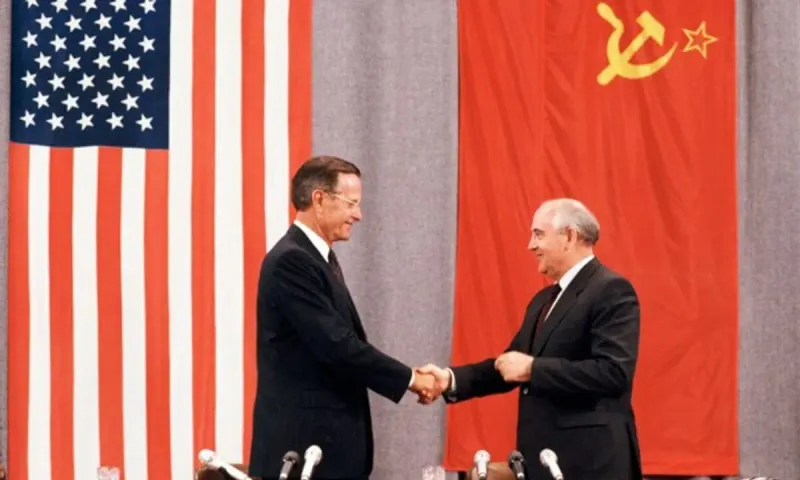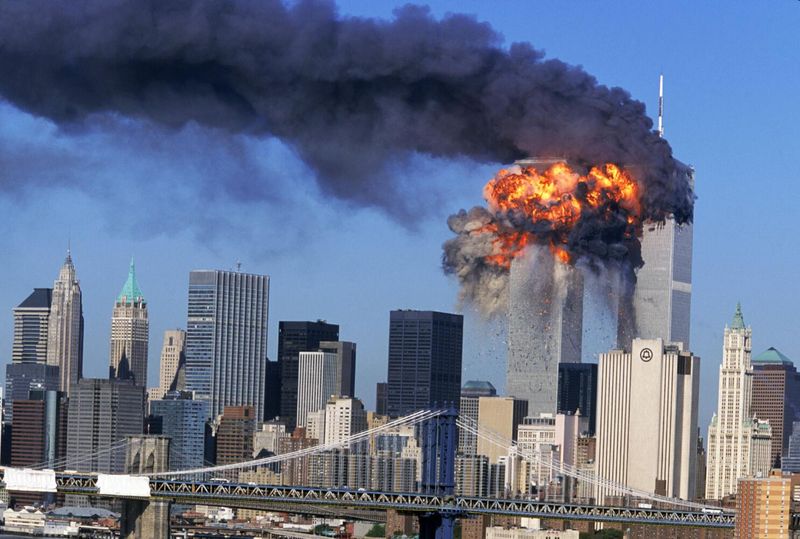From primal sparks in ancient caves to digital pings in your pocket, these are the 27 defining dates that changed the course of human history—some you know, some you’ll never forget, and a few that might just surprise you.
1. c. 1.5 Million BCE – Humans Harness Fire
Harnessing fire was not merely a survival skill; it was a technological revolution. Imagine ancient humans sitting around the warmth of a crackling fire, sharing stories, and roasting food. This newfound ability to control fire offered protection from predators and provided warmth during cold nights.
Beyond warmth and protection, fire enabled humans to cook food, which was easier to digest and more nutritious. This advancement likely contributed to the evolution of the human brain. With fire, humanity took its first steps toward technological innovation, forever altering the trajectory of human development.
2. c. 3200 BCE – The Invention of Writing in Sumer
In the cradle of civilization, the Sumerians devised a method to capture thoughts and events for posterity. Writing was born. With a stylus in hand, scribes carved cuneiform symbols into damp clay tablets.
This innovation transcended oral tradition, allowing for the recording of laws, trade transactions, and epic tales. It laid the foundation for complex societies and facilitated the administration of expansive empires. The invention of writing wasn’t just about words; it marked the dawn of recorded history, setting humanity on a path towards literacy and knowledge preservation.
3. c. 2560 BCE – Completion of the Great Pyramid of Giza
The Great Pyramid stands as a testament to ancient Egyptian ambition and ingenuity. For decades, thousands of workers toiled to align massive stones with celestial precision, creating a structure that has intrigued humanity for millennia.
More than just a tomb, the pyramid symbolizes the power and organization of the pharaohs. Its construction remains a marvel, with theories ranging from ramps to alien intervention. A symbol of eternity and mystery, the Great Pyramid continues to inspire awe and wonder, representing the zenith of ancient architectural achievement.
4. 776 BCE – First Olympic Games in Ancient Greece
In a spirit of unity and competition, the ancient Greeks gathered to celebrate athletic excellence. The first Olympic Games were held, marking a tradition that endures to this day. Athletes competed for glory, not gold, in events like footraces, wrestling, and discus.
The games fostered a sense of shared Hellenic identity and inspired the modern Olympic movement. Held every four years, the ancient Olympics were a unifying force for city-states that were often at war. These games laid the foundation for international sports competitions, emphasizing physical prowess and cultural pride.
5. 44 BCE – Assassination of Julius Caesar
With the words “Et tu, Brute?” the fate of Rome was sealed. Julius Caesar’s assassination was an event that reshaped the Roman Republic. Senators, fearing his growing power, conspired to end his life, plunging Rome into chaos.
The repercussions were profound, leading to the downfall of the Republic and the rise of the Roman Empire. Caesar’s death marked a turning point in Roman history, influencing politics and power dynamics for generations. His legacy endures in history books and literature, symbolizing the perils of ambition and betrayal.
6. 33 CE – Crucifixion of Jesus of Nazareth
The crucifixion of Jesus is a pivotal moment in religious history. It marks the culmination of his teachings and the beginning of Christianity. For believers, it’s a story of sacrifice and redemption that echoes through centuries.
Beyond its religious significance, this event influenced art, culture, and law. The teachings of Jesus continue to shape moral and ethical frameworks across the globe. His crucifixion remains a cornerstone of Christian faith, symbolizing love, forgiveness, and salvation. This moment changed the course of history, inspiring countless individuals and communities.
7. 476 CE – Fall of the Western Roman Empire
The mighty Roman Empire, once stretching across continents, crumbled under internal and external pressures. The fall of Rome marked the end of ancient civilization and the beginning of the Middle Ages.
In its wake, Europe entered a period of fragmentation and decline, often called the Dark Ages. The fall reshaped the European landscape, leading to the rise of feudalism and the birth of new kingdoms. Despite the collapse, Roman culture and ideas persisted, influencing art, architecture, and governance. The fall of Rome signifies both an end and a beginning in world history.
8. 622 CE – Muhammad’s Hijrah to Medina
Muhammad’s journey from Mecca to Medina, known as the Hijrah, marks the starting point of the Islamic calendar. It was more than a physical migration; it was the birth of a community united in faith.
This journey transformed Islam from a persecuted belief into a powerful religious and political force. In Medina, Muhammad established a model for Islamic governance and society. The Hijrah symbolizes resilience and faith, laying the groundwork for a civilization that would spread across continents, influencing cultures and histories far beyond the Arabian Peninsula.
9. 1066 – Battle of Hastings
The Battle of Hastings was a turning point in English history. William the Conqueror’s victory over King Harold II changed the course of the English monarchy and language.
This battle introduced Norman culture and the French language to England, influencing the legal and social systems. The infamous arrow that struck Harold down is still debated among historians. Hastings remains a symbol of conquest and transformation, reflecting the dynamic and often tumultuous nature of medieval power struggles. It set the stage for the England we know today, blending cultures and traditions.
10. 1215 – Signing of the Magna Carta
At the insistence of rebellious barons, King John of England signed the Magna Carta, a document that became a cornerstone of constitutional law. This “Great Charter” limited royal power and established principles of justice and rights.
Although initially a practical solution to a political crisis, it evolved into a symbol of liberty and democracy. The Magna Carta’s influence extended beyond England, inspiring legal systems worldwide. Its legacy endures, representing the enduring quest for freedom and equality under the law, shaping modern human rights and governance.
11. 1492 – Columbus Reaches the Americas
In 1492, Columbus sailed the ocean blue, forever altering the course of history. His journey across the Atlantic opened the Americas to European exploration and colonization.
This encounter marked the beginning of a new era of global interaction, trade, and cultural exchange. The impact was profound, leading to the Columbian Exchange, which transformed diets, economies, and societies. However, it also led to the exploitation and decline of indigenous populations. Columbus’s voyage is a complex legacy of discovery and devastation, symbolizing the interconnectedness of the world.
12. 1517 – Martin Luther’s 95 Theses Spark the Reformation
With a hammer and parchment, Martin Luther challenged the Catholic Church, sparking the Protestant Reformation. His 95 Theses questioned indulgences and church practices, igniting debate across Europe.
Luther’s actions led to the fragmentation of religious unity, giving rise to Protestant denominations. The Reformation reshaped religious, political, and cultural landscapes, influencing education and governance. It fostered critical thinking and individual faith, paving the way for religious tolerance and diversity. Luther’s legacy endures, representing the power of conviction and the transformative impact of challenging authority.
13. 1609 – Galileo Uses the Telescope
When Galileo Galilei turned his telescope towards the heavens, he unveiled a universe beyond the imagination. His observations challenged traditional views, marking a pivotal moment in the Scientific Revolution.
Galileo’s discoveries, including the moons of Jupiter, supported the heliocentric model, placing the Sun at the center of the solar system. His work laid the groundwork for modern astronomy and physics. Despite facing opposition from the church, Galileo’s legacy as a pioneer of scientific inquiry remains strong, symbolizing the quest for knowledge and the courage to seek truth.
14. 1776 – American Declaration of Independence
In a bold act of defiance, thirteen American colonies declared independence from British rule. The Declaration of Independence, primarily authored by Thomas Jefferson, articulated ideals of liberty, equality, and self-governance.
This document became a symbol of freedom, inspiring movements worldwide. The declaration marked the birth of a nation and set the stage for the United States to become a beacon of democracy. Its principles continue to resonate, shaping political discourse and human rights. The American Revolution’s spirit of independence and innovation remains a cornerstone of national identity.
15. 1789 – Storming of the Bastille
The storming of the Bastille prison was a dramatic flashpoint in the French Revolution. It symbolized the people’s revolt against tyranny and sparked a wave of revolutionary fervor.
As the fortress fell, so did the old regime, leading to the rise of republican ideals. This event marked the beginning of the end for monarchies across Europe, inspiring demands for freedom and equality. The Bastille’s fall remains a potent symbol of rebellion and the power of popular movements, shaping the course of modern political thought and systems.
16. 1804 – Napoleon Becomes Emperor of France
Napoleon Bonaparte’s coronation as Emperor marked a new era for France and Europe. Once a revolutionary hero, Napoleon transformed into a ruler with ambitions of empire.
His reign saw the consolidation of power, legal reforms, and military expansion, reshaping Europe. The Napoleonic Code influenced legal systems worldwide, emphasizing equality before the law. However, his imperial pursuits led to conflict and eventual downfall. Napoleon’s legacy is multifaceted, representing both the heights of ambition and the perils of overreach, leaving an indelible mark on history.
17. 1863 – Emancipation Proclamation Issued
In the midst of the American Civil War, President Abraham Lincoln issued the Emancipation Proclamation, a landmark decree that declared freedom for enslaved people in Confederate states.
This bold act redefined the war’s purpose, turning it into a fight for human rights and equality. Although it didn’t immediately free all enslaved individuals, it set the stage for the abolition of slavery. The proclamation’s impact resonated beyond borders, influencing global movements for justice and civil rights. Lincoln’s legacy as the Great Emancipator endures, symbolizing the struggle for freedom and equality.
18. 1914 – Assassination of Archduke Franz Ferdinand
The assassination of Archduke Franz Ferdinand of Austria ignited the spark that led to World War I. In Sarajevo, a shot rang out, disrupting the delicate balance of European alliances.
This tragic event set off a chain reaction, plunging nations into a devastating conflict that reshaped borders and societies. The Great War’s impact was profound, leading to political upheaval and laying the groundwork for future conflicts. The assassination remains a symbol of the fragility of peace and the complexities of international relations, forever altering the course of history.
19. 1920 – Women Get the Vote in the U.S.
The ratification of the 19th Amendment granted American women the right to vote, marking a triumph in the struggle for suffrage. This milestone was the result of decades of tireless advocacy, protests, and perseverance.
Women’s enfranchisement reshaped the political landscape, empowering women to participate in democratic processes. The amendment’s passage was a victory for equality, inspiring similar movements worldwide. The fight for women’s rights continues, building on the legacy of suffragettes who dared to challenge societal norms and demand their rightful place in the political arena.
20. 1939 – Hitler Invades Poland
The invasion of Poland by Nazi Germany marked the beginning of World War II. Hitler’s aggressive expansionism shattered the peace in Europe, leading to a conflict that engulfed the globe.
The swift and brutal attack on Poland demonstrated the power of Blitzkrieg warfare, leaving devastation in its wake. This invasion prompted Britain and France to declare war on Germany, setting the stage for a prolonged and destructive war. World War II reshaped global politics, alliances, and economies, leaving a lasting impact on the 20th century and beyond.
21. 1945 – Atomic Bombs Dropped on Hiroshima and Nagasaki
In 1945, the world witnessed the destructive power of atomic weapons. The bombings of Hiroshima and Nagasaki brought World War II to a close but introduced humanity to the nuclear age.
The devastation was unparalleled, with tens of thousands killed instantly and long-term effects felt for generations. These bombings forced Japan’s surrender, ending the conflict but raising ethical questions about nuclear warfare. The events in Hiroshima and Nagasaki serve as a haunting reminder of the consequences of technological advancements and the need for peace and diplomacy in a fragile world.
22. 1963 – MLK’s “I Have a Dream” Speech
On the steps of the Lincoln Memorial, Martin Luther King Jr. delivered an iconic speech that became a defining moment in the Civil Rights Movement. His words painted a vision of equality and justice that resonated across the nation.
King’s call for racial harmony and his dream of a society free from discrimination inspired millions. His speech became a catalyst for change, influencing legislation and attitudes toward civil rights. King’s legacy endures, reminding us of the ongoing struggle for social justice and the power of words to unite and inspire.
23. 1969 – Apollo 11 Moon Landing
With the words “That’s one small step for man, one giant leap for mankind,” Neil Armstrong set foot on the Moon, marking a monumental achievement in human exploration.
The Apollo 11 mission was a triumph of technology, innovation, and determination. It fulfilled President Kennedy’s vision and captivated the world, showcasing the potential of human ingenuity. The moon landing symbolized the Cold War’s space race, yet it united humanity in awe and wonder. It remains a testament to what is possible when nations invest in science and exploration, inspiring future generations.
24. 1989 – Fall of the Berlin Wall
The fall of the Berlin Wall was a watershed moment in history, symbolizing the end of the Cold War and the reunification of Germany. As the wall crumbled, so did the barriers that divided East and West.
This event marked the triumph of freedom over oppression, inspiring movements for democracy worldwide. The Berlin Wall’s collapse catalyzed political change across Eastern Europe, leading to the dissolution of the Soviet Union. It remains a powerful emblem of hope and liberation, representing the resilience of the human spirit in the face of division.
25. 1991 – Dissolution of the Soviet Union
The dissolution of the Soviet Union marked the end of an era and the birth of a new world order. Once a superpower, the USSR disintegrated into independent republics, reshaping global geopolitics.
This peaceful transition ended the Cold War, influencing economies and alliances worldwide. The fall of the Soviet Union signified the triumph of democratic ideals over authoritarian rule. It left a complex legacy, with challenges and opportunities for former Soviet states. The dissolution remains a pivotal moment in history, highlighting the power of change and the enduring quest for freedom.
26. 2001 – September 11 Attacks
The September 11 attacks were a defining moment in the 21st century, reshaping global politics and security. On this day, terrorists struck at the heart of America, bringing down the Twin Towers and causing immense loss and grief.
The attacks prompted a global response, leading to the War on Terror and changes in international relations. The events of 9/11 highlighted the vulnerabilities of an interconnected world, prompting shifts in security and policy. They remain a somber reminder of the impact of extremism and the resilience of those who strive for peace and unity.
27. 2004 – Facebook Launches
From a college project to a global phenomenon, Facebook transformed the way people connect and communicate. Launched by Mark Zuckerberg, the platform revolutionized social networking.
Facebook’s impact reaches beyond friendships and likes; it has influenced politics, business, and culture. It changed the landscape of digital interaction, fostering a new era of connectivity and information sharing. However, it also raised concerns about privacy and data security. Facebook’s launch marked the beginning of a digital revolution, reshaping the way we perceive and engage with the world around us.



